We frequently receive tip-offs from accountants and lawyers who’ve seen firms promoting dubious tax schemes.
This often requires a large amount of analysis from us to work out exactly what’s going on, and what the true tax consequence is.
But sometimes it’s obvious that what’s being proposed is wildly improper, even fraudulent. We’re going to start publishing cases like this as “tax scam of the day” – documents and links plus a short explanation of why what’s proposed is a scam.
We hope that this helps warn potential clients off dangerous scams, and prompts HMRC and other authorities to be more proactive identifying and closing down cowboy tax advisers.
What’s the claim?
Corporation Tax Rebates’s website⚠️ says they’re the “UK’s First Corporation Tax Recovery Service Based on Data Risk Compliance”. The pitch is that GDPR can lead to large claims against businesses, so accounting rules permit companies to make large provisions against future liabilities, resulting in tax rebates.
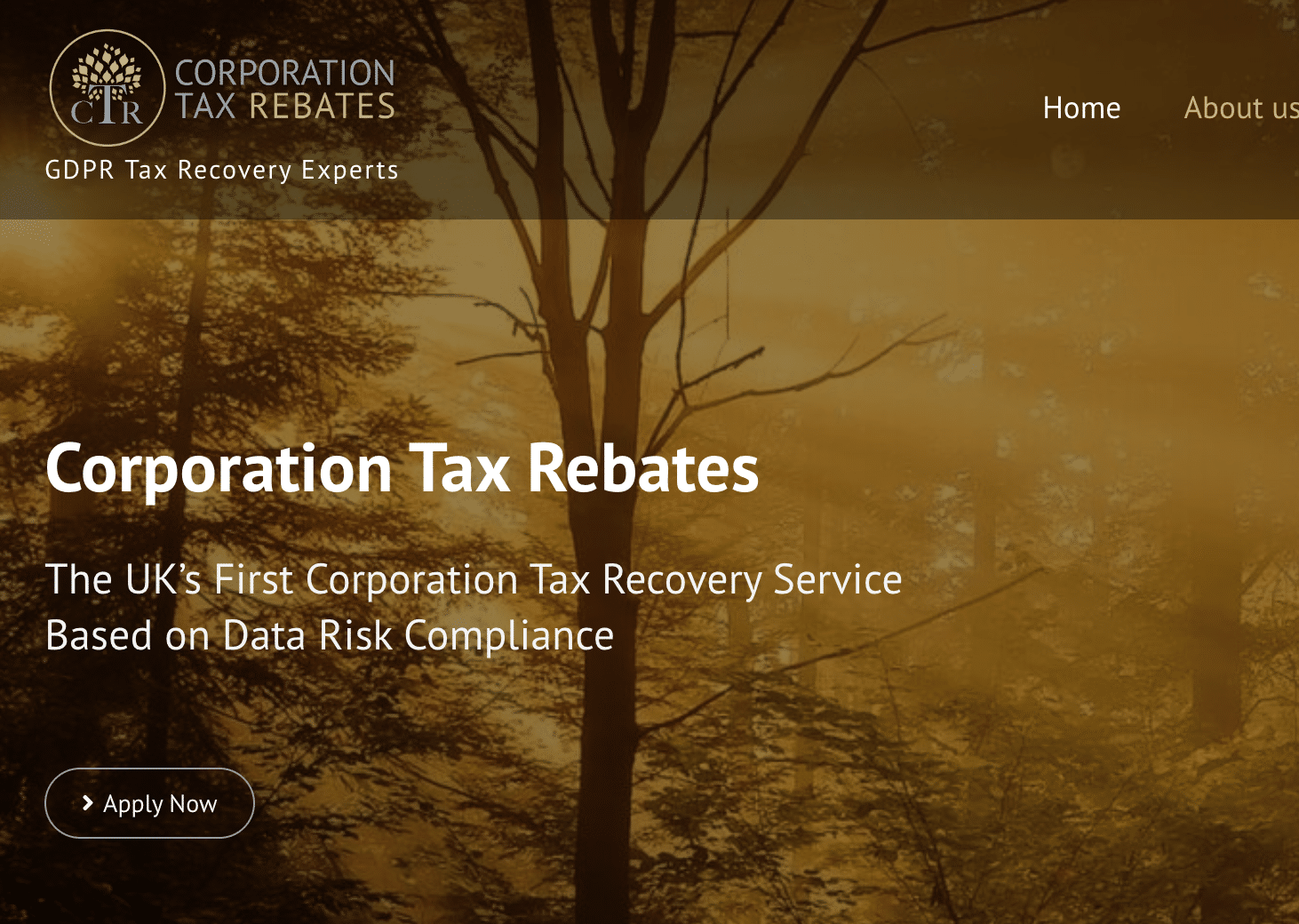
They claim to have recovered large sums for clients⚠️:
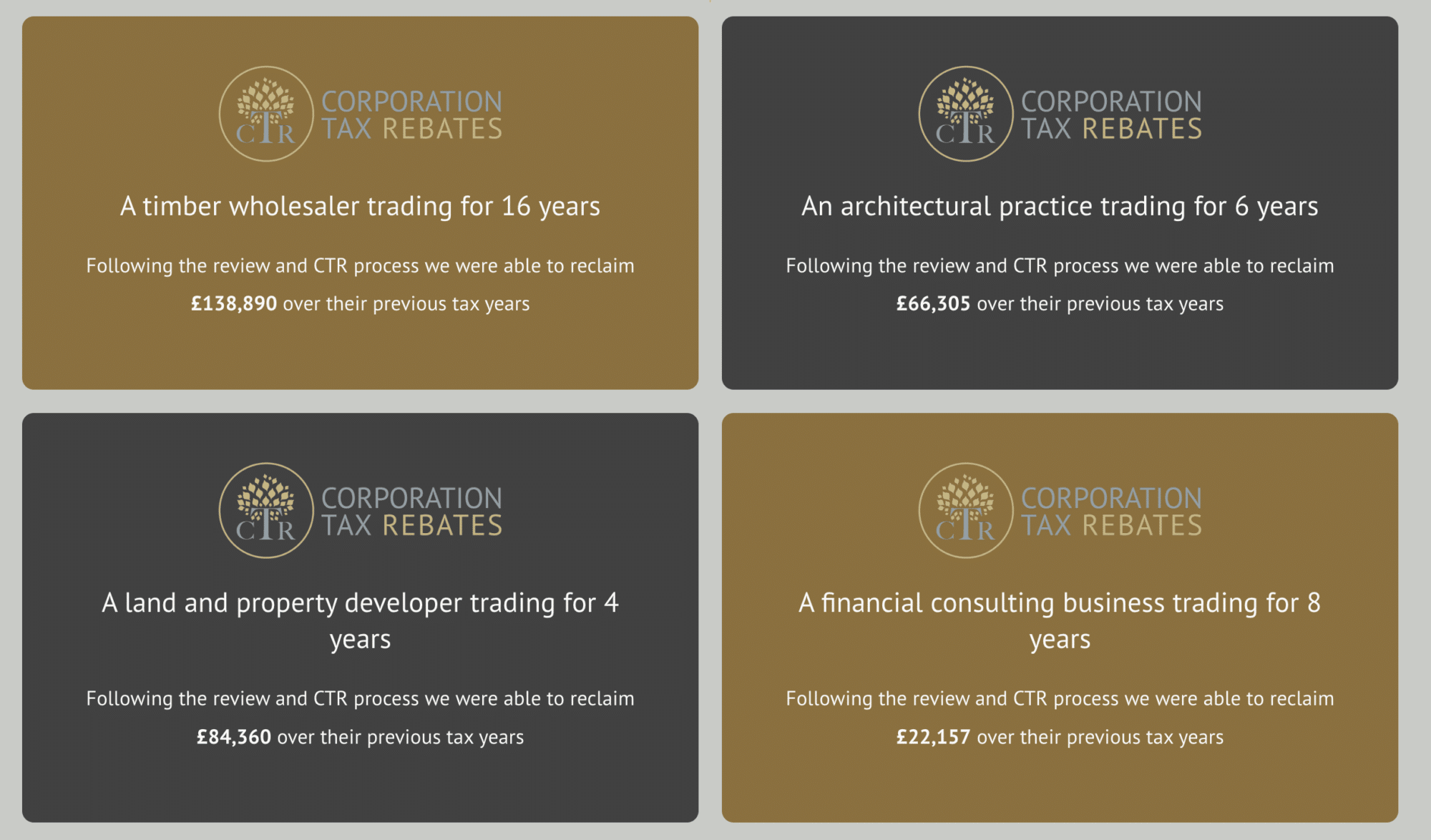
Why is it a scam?
If Corporation Tax Rebates Ltd is the “first” company offering this service, that’s for the very good reason1 that you can’t recover corporation tax based on vague thoughts that you might have to pay GDPR fines/damages at some point in the future. We explained why here but, in short, the fines/damages have to be probable and quantifiable, and for almost all small businesses this won’t be the case.
We can see no proper basis for timber wholesalers, architects, land developers or financial consulting business to have six figure provisions for GDPR damages. The obvious way to test this: how many companies in these sectors have had six figure damages awards against them? The answer is: hardly any. Civil damages awards are rare and small🔒.
The danger for Corporation Tax Rebates’ clients is that this scam will appear to work. If you amend your corporation tax return then you may just get a refund automatically (although even this isn’t straightforward – see Richard Thomas’ comment below).
If HMRC become aware that a company’s doing this, we are confident they would open an enquiry, and the consequences for the company are likely to be bad. Any HMRC enquiry could come up to a year after the refund scheme… and, if it all goes wrong, good luck recovering your fee from Corporation Tax Rebates.
The documentation
There are many websites pushing GDPR tax credits, but most appear highly amateurish, and our suspicion is that they’re just low-level scams. Corporation Tax Rebates Ltd is different. The company and its introducers send out glossy publicity material that goes into some detail.
Here’s their FAQ (PDF version here):
The process for accountants is set out here (PDF here):
And a “confidential briefing note” for insolvency practitioners and accountants (PDF here):2
Who is behind the company?
Corporation Tax Rebates Ltd’s directors are Katherine (Kate) Lonsdale, Pamela Moore and Ian Andrew Sinclair-Ford (and, previously, Michael Woolnough). You can see their details here.⚠️
Ian Andrew Sinclair-Ford is listed as the “person with significant control” of the company 3 and the document metadata shows him as the author of the “confidential briefing note”. He gives his profession as “solicitor”.
We believe anyone with legal, tax or accounting training should know this scheme is improper. We therefore believe it should be investigated as criminal tax fraud, not as tax avoidance. We have reported Sinclair-Ford to the SRA
Many thanks to M for the original tip, and to Trevor Fenton for sending us the documents and looking into the Companies House materials.
Documents ©Corporation Tax Rebates Ltd and reproduced here in the public interest and for purposes of criticism.
Footnotes
Many thanks to Tristam Price for this line. ↩︎
We note that the documents are asserted to be confidential. They are not; they were sent to our source without any prior agreement of confidentiality, pre-existing business relationship or any other circumstances under which it is reasonable to expect a duty of confidence to arise. Even if they were confidential, there is a public interest in disclosure, and the iniquity rule means that there is never confidentiality in a fraud. ↩︎
Although it’s not clear that’s correct – each of the three holds 1/3 of the company. There are other oddities in the Companies House filings, with share capital of £105 but only one £1 share ever alloted/issued. ↩︎


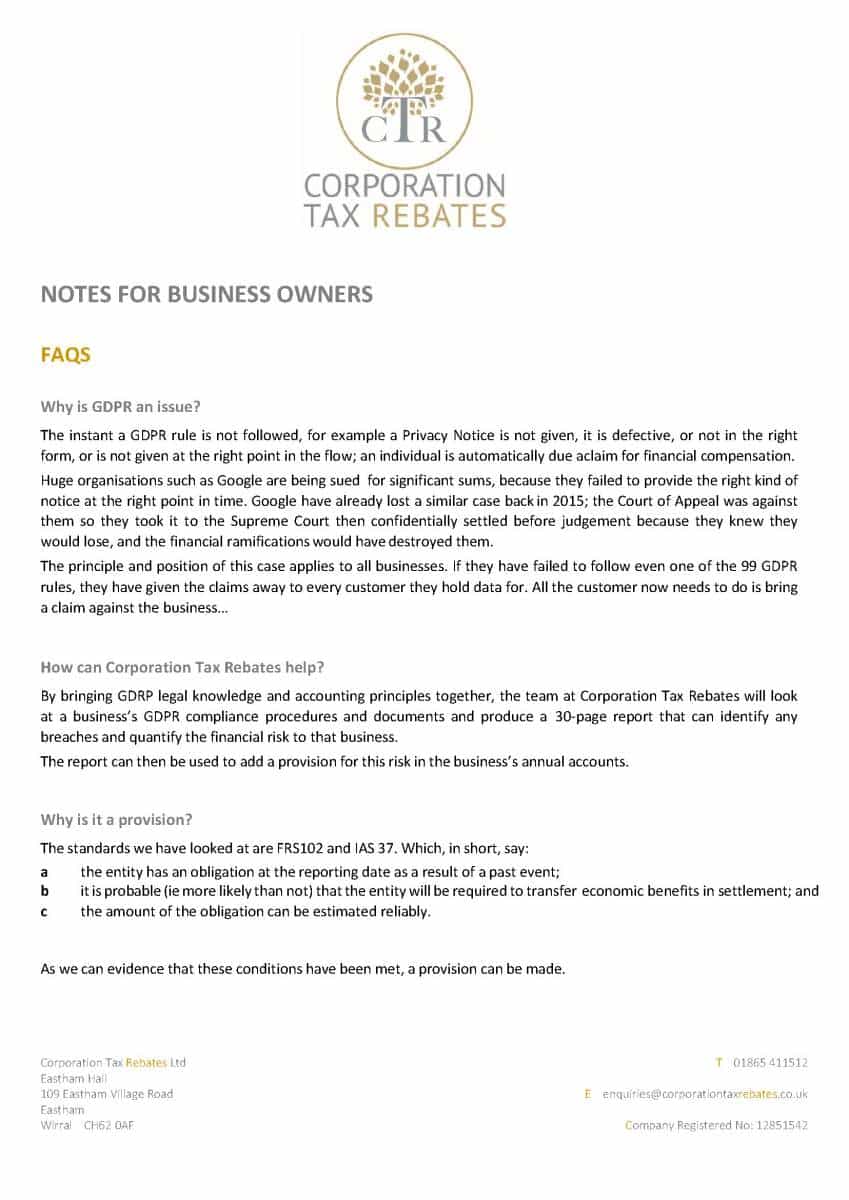
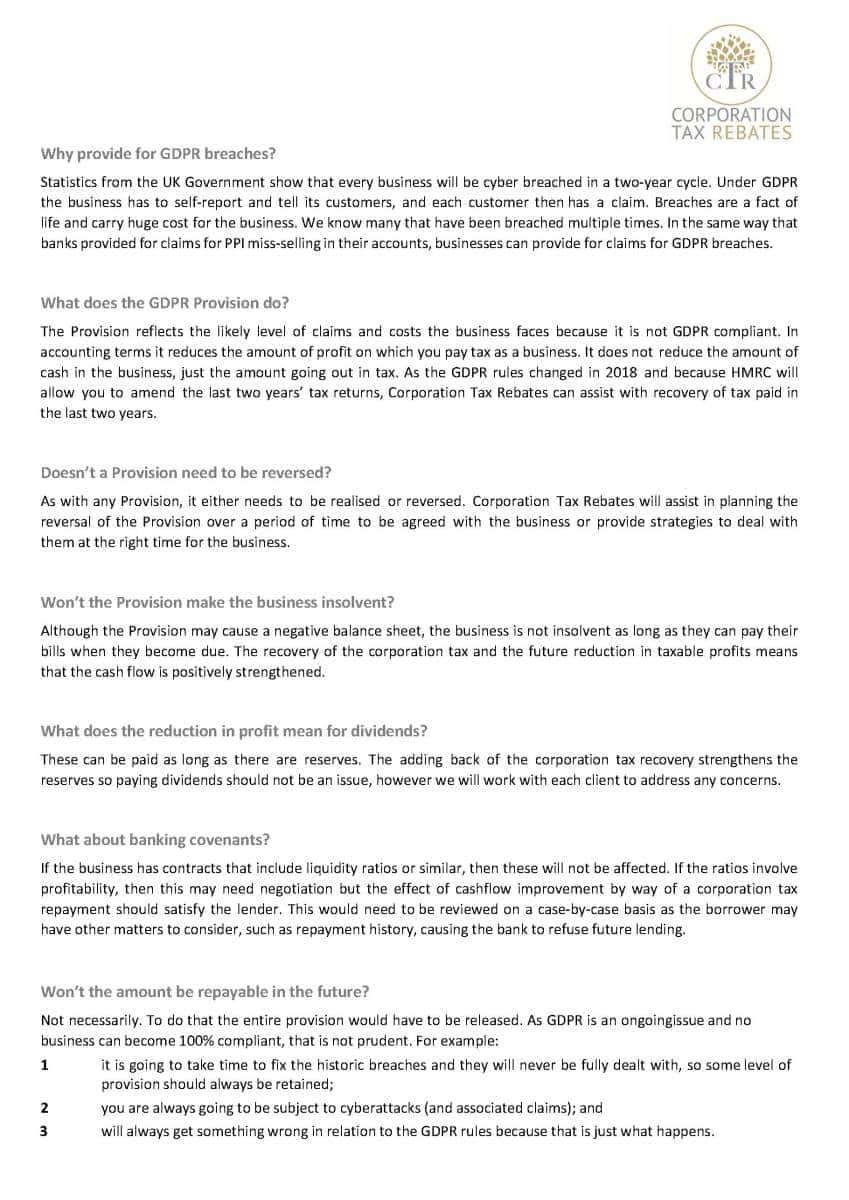
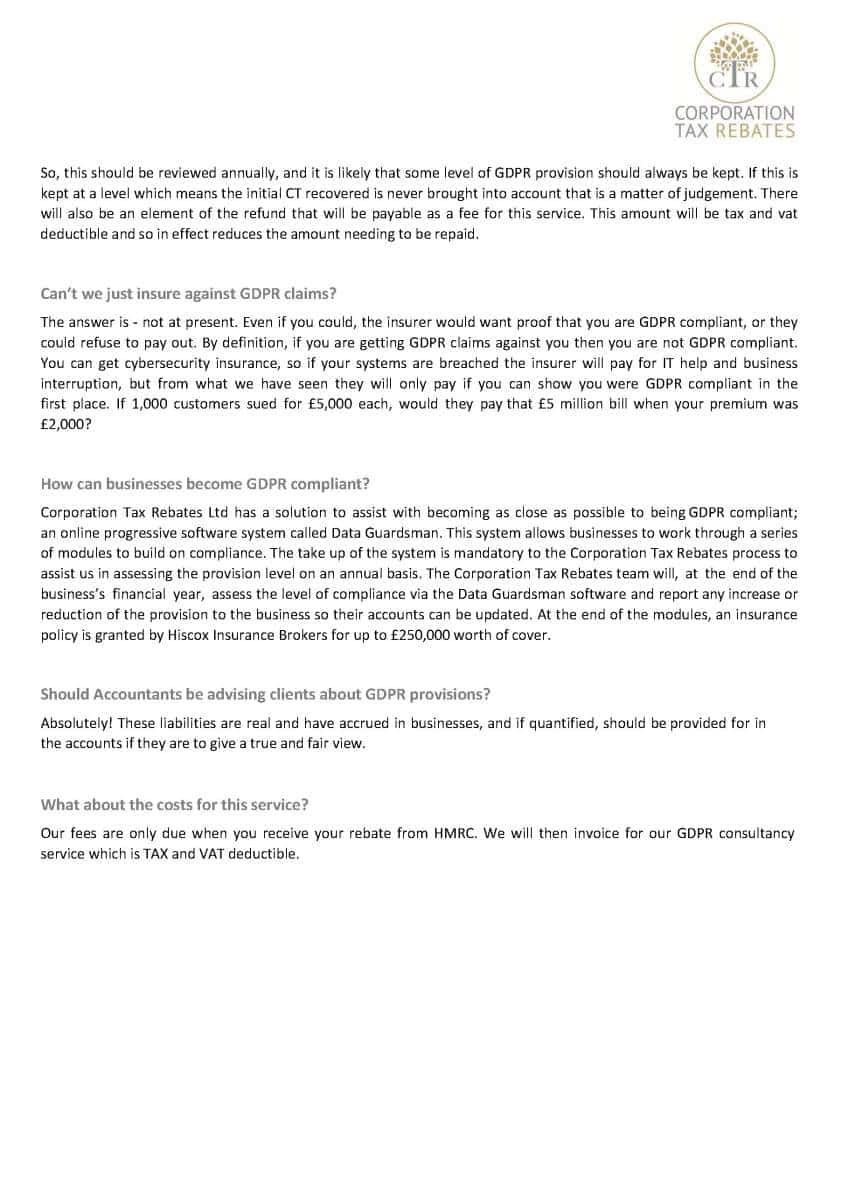
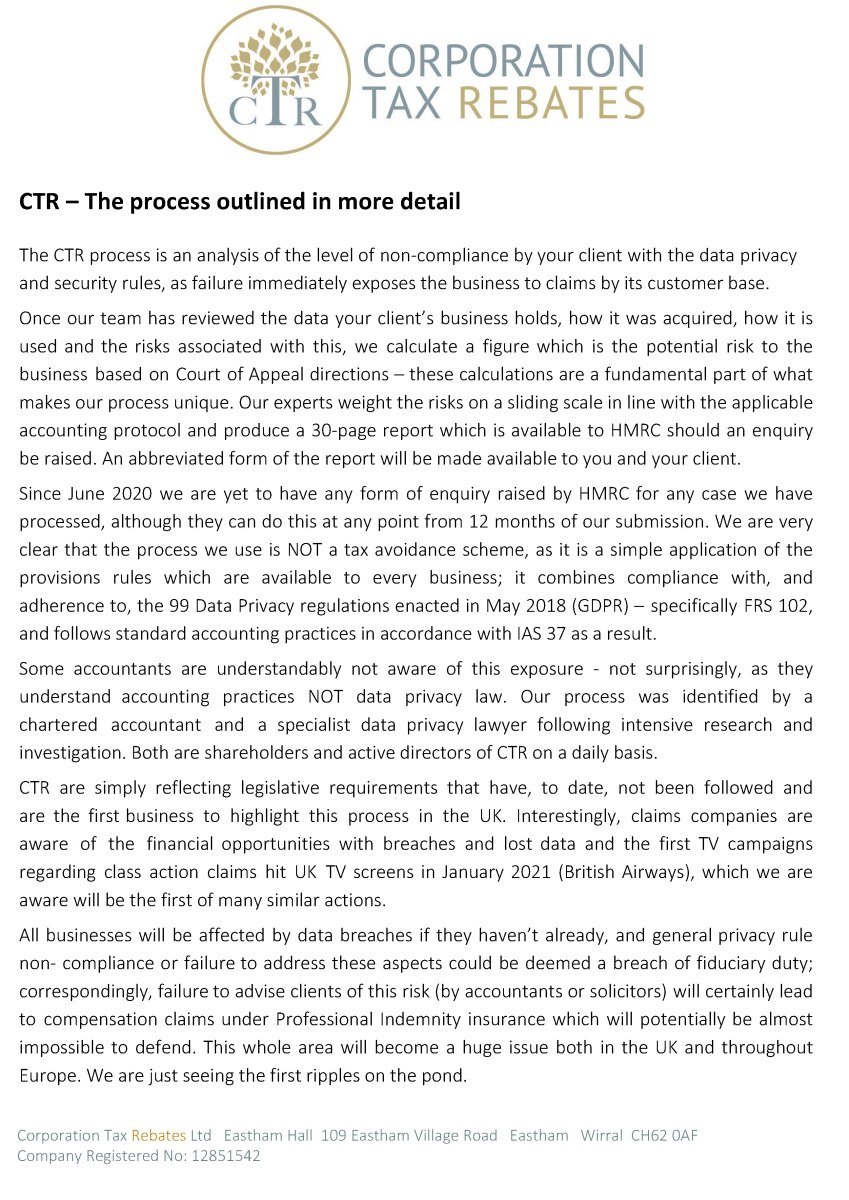
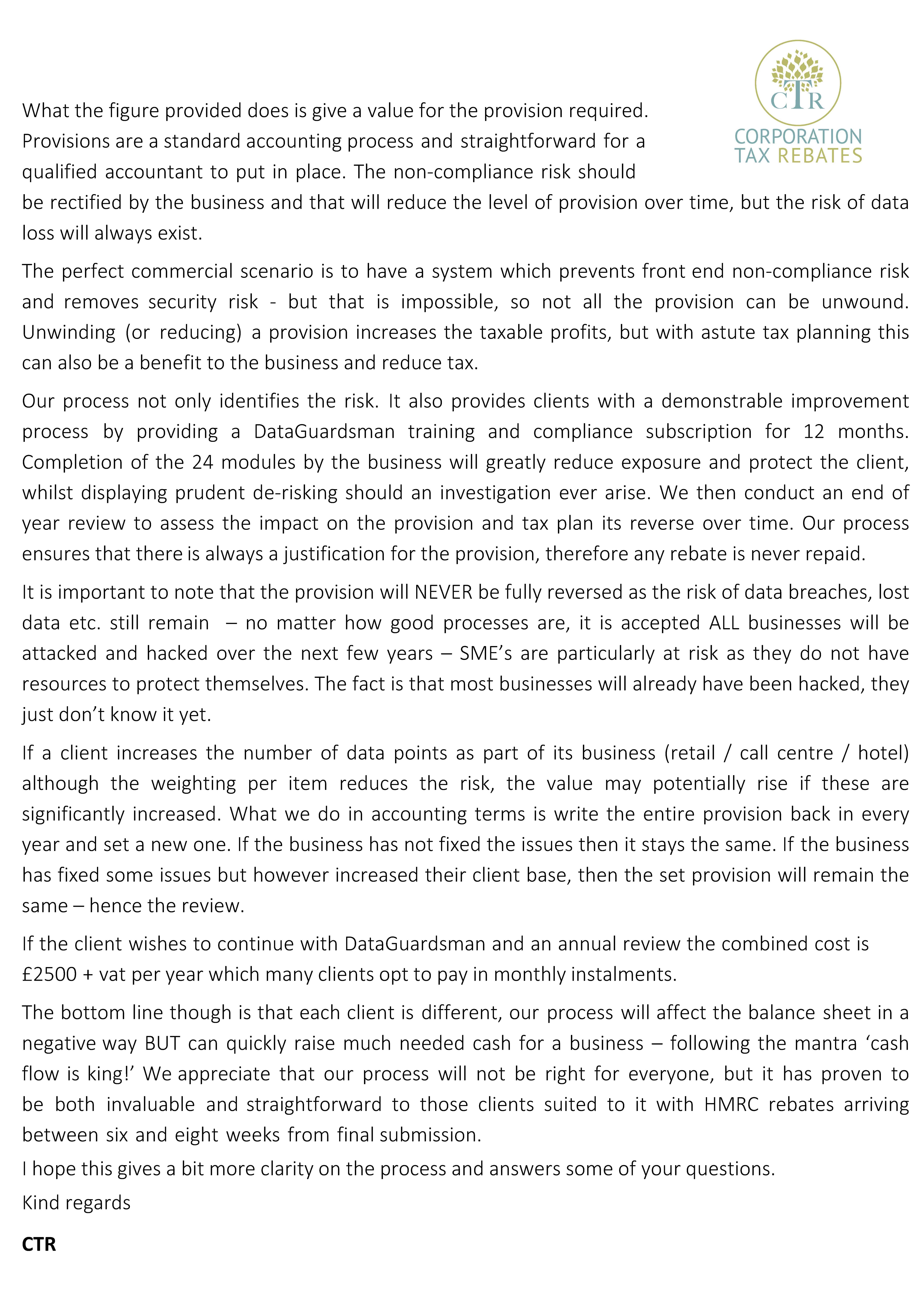
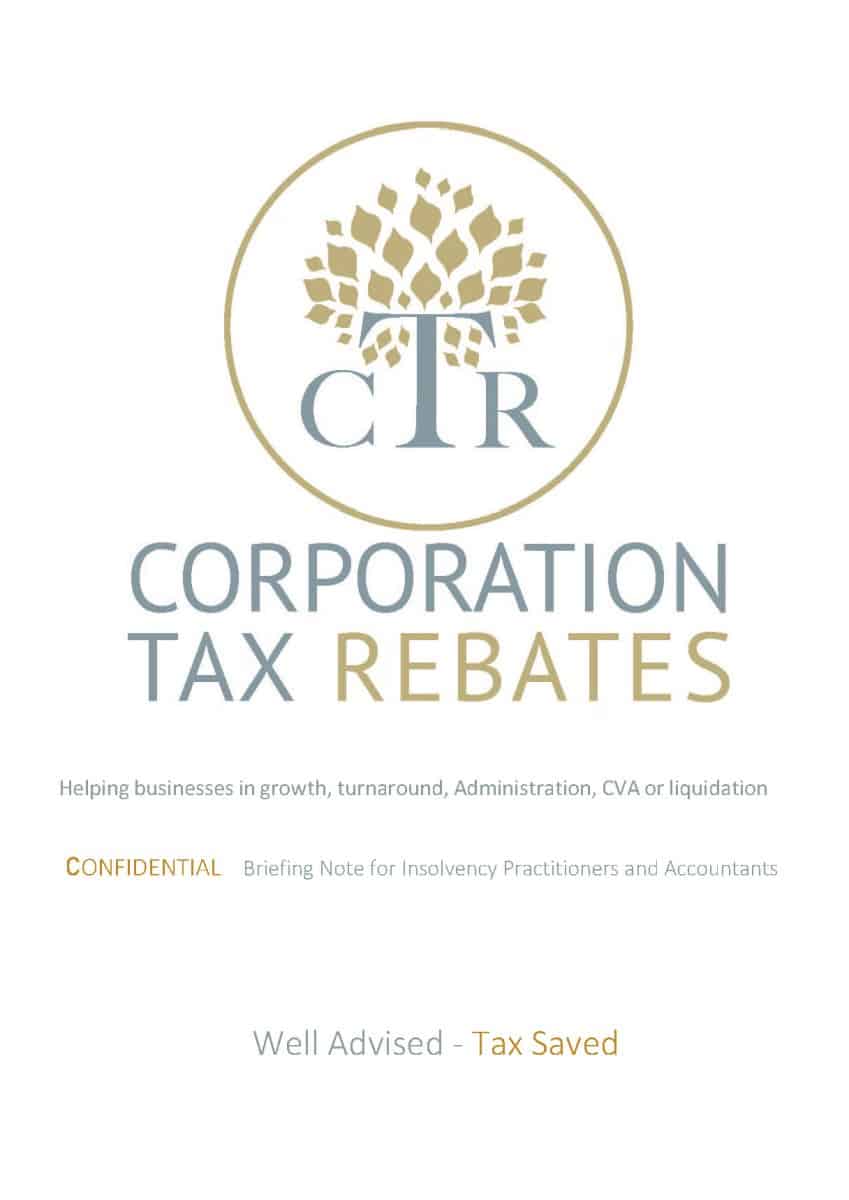
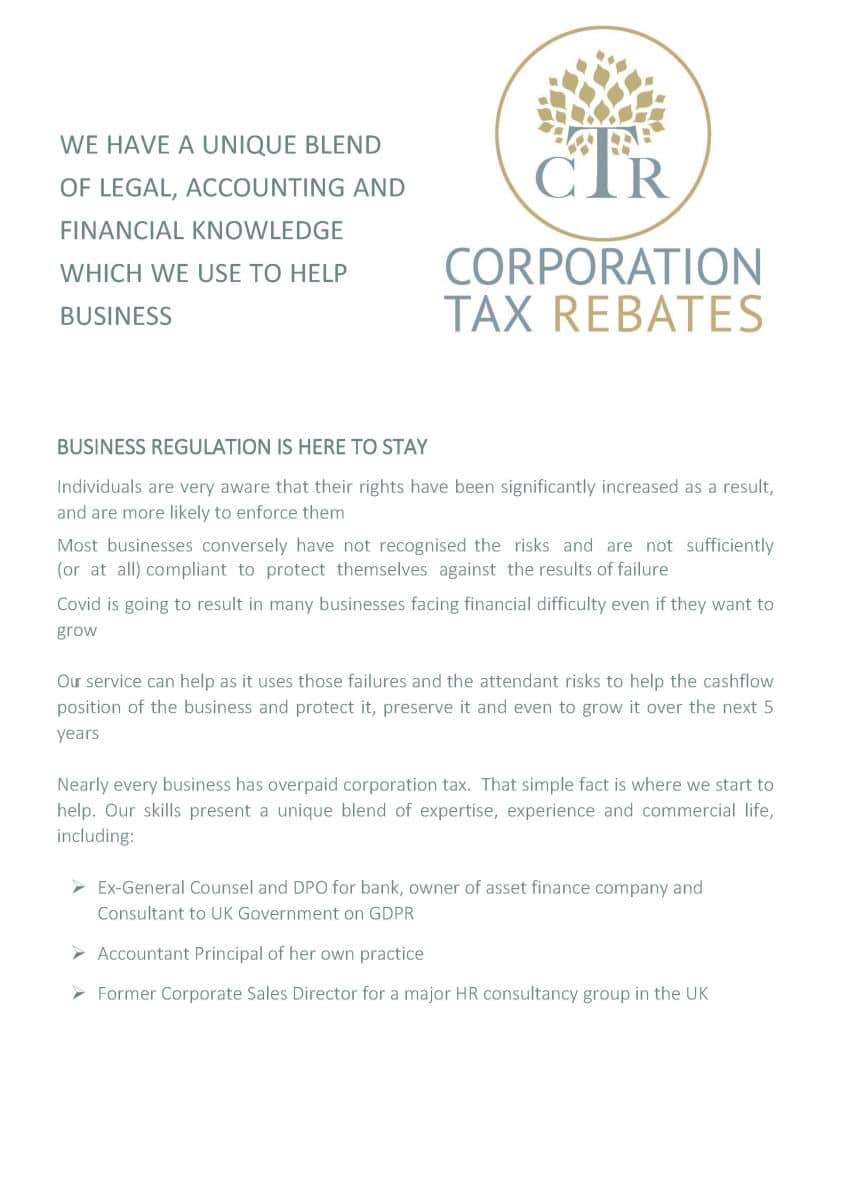
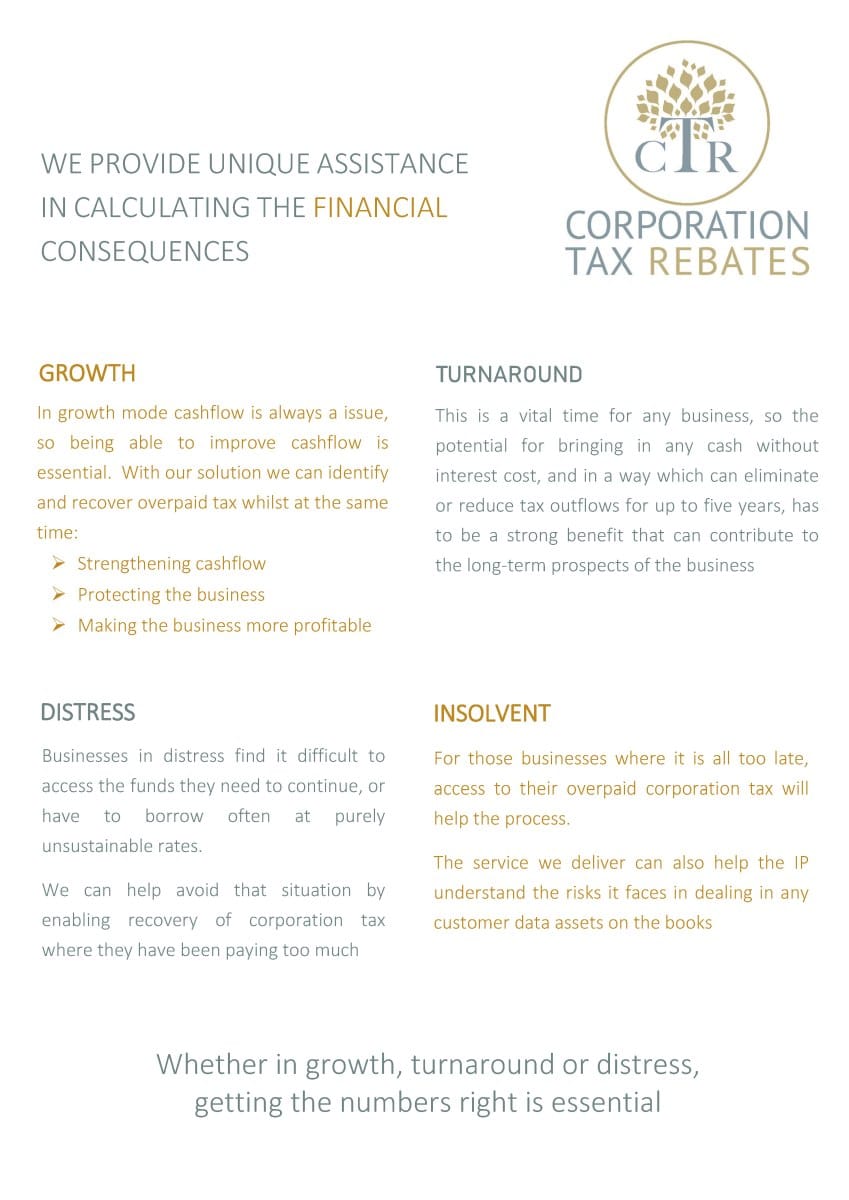
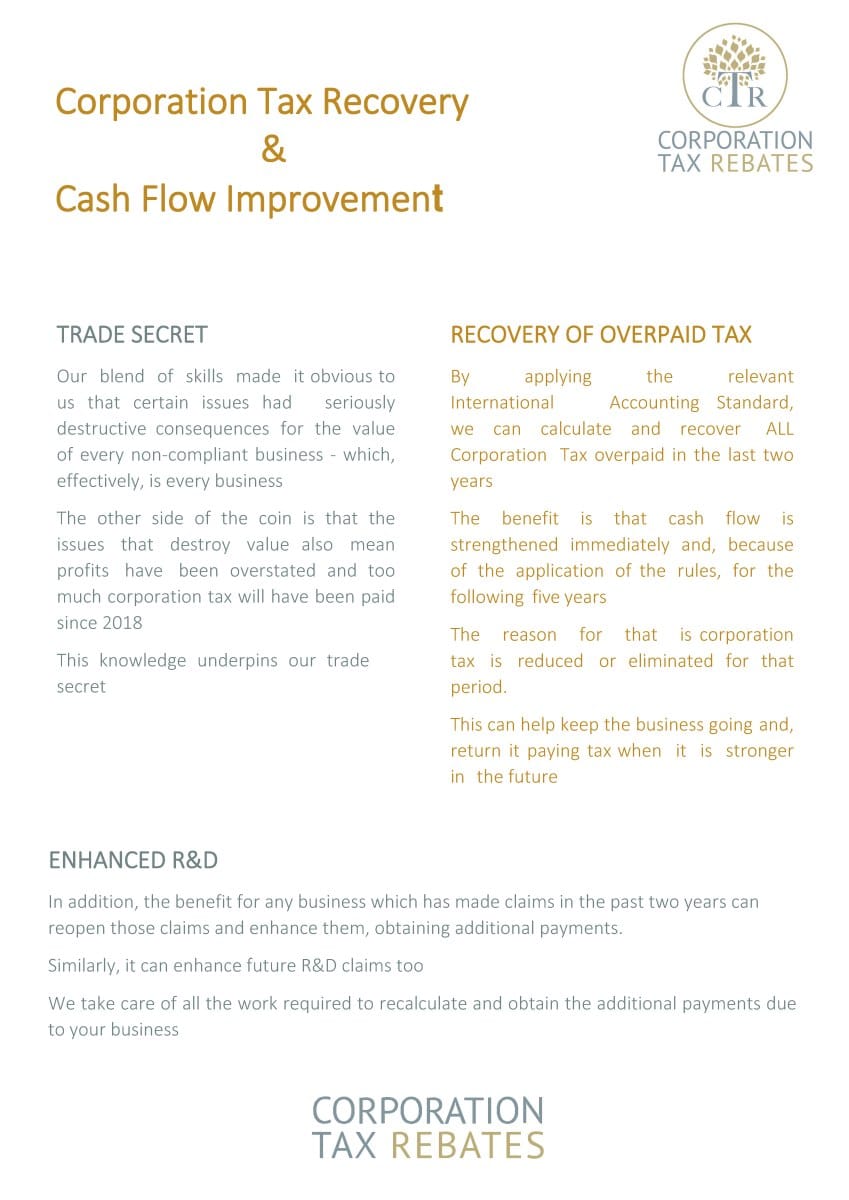
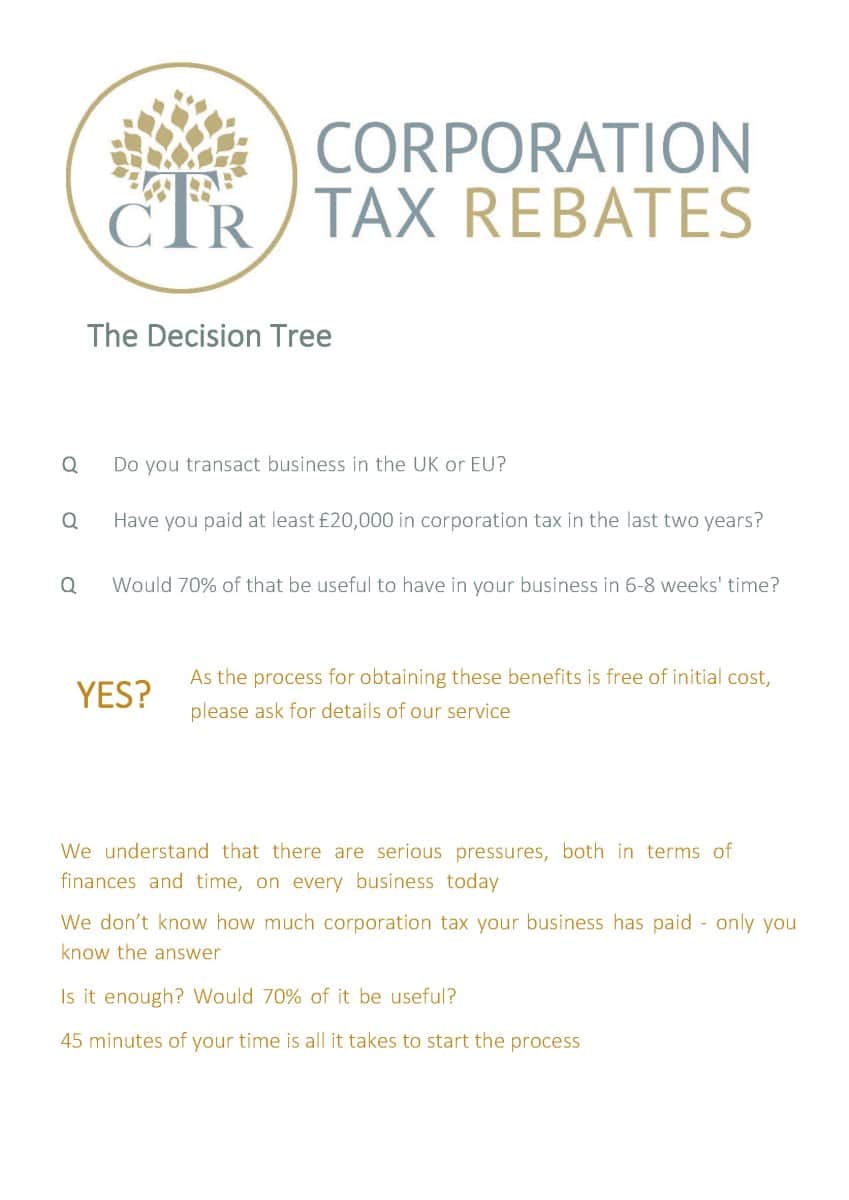
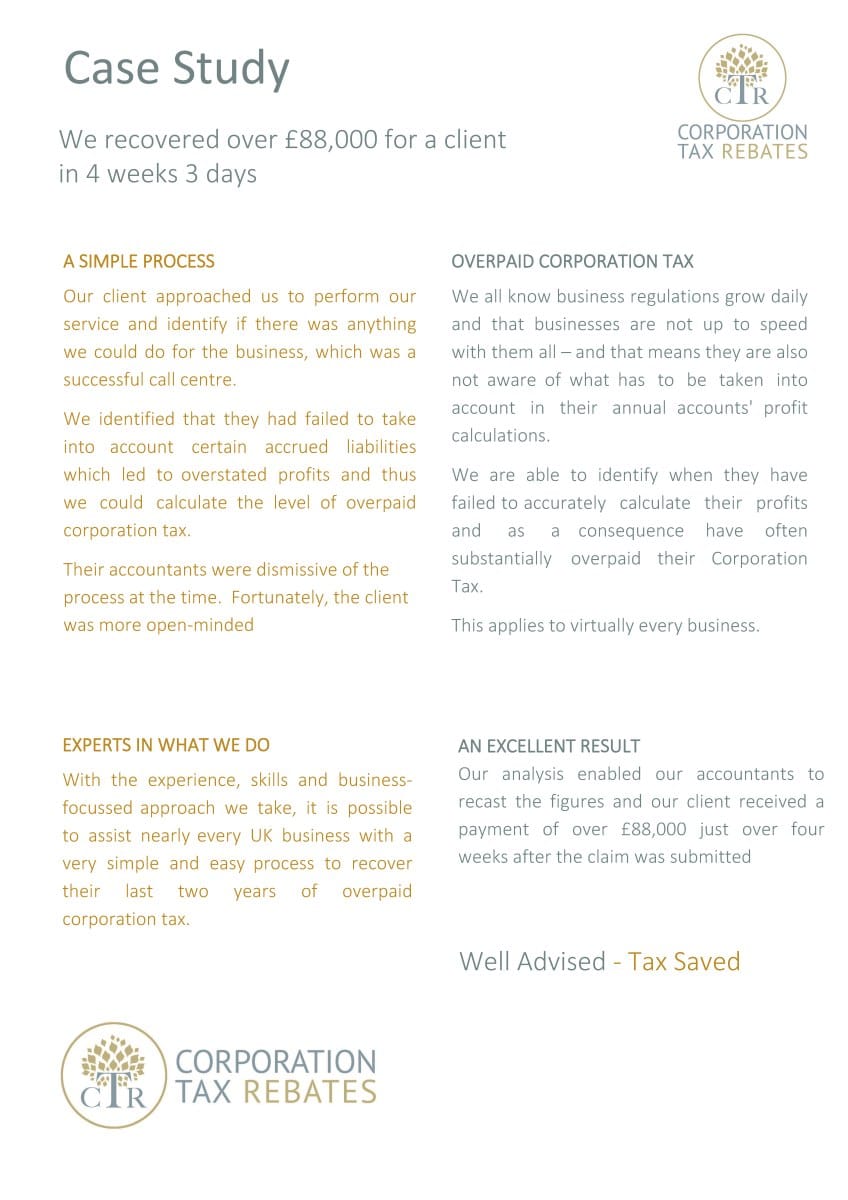
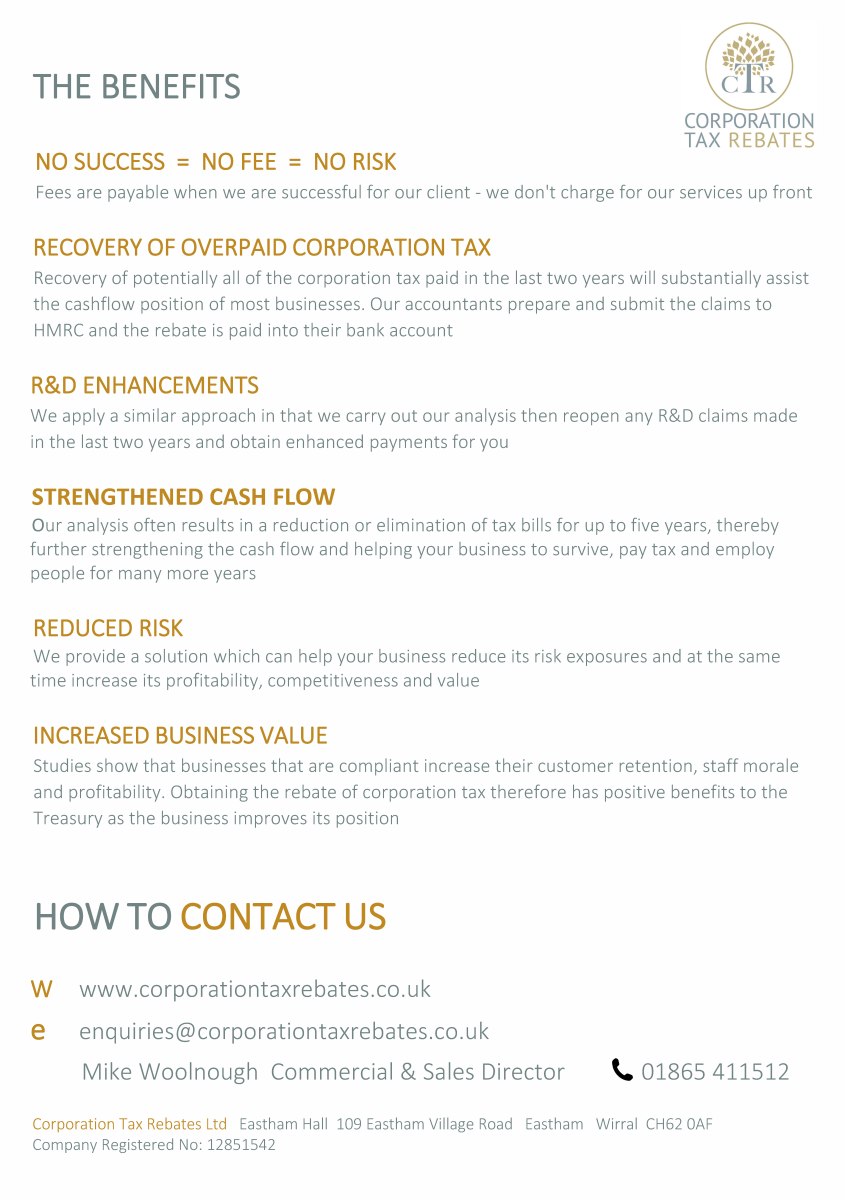
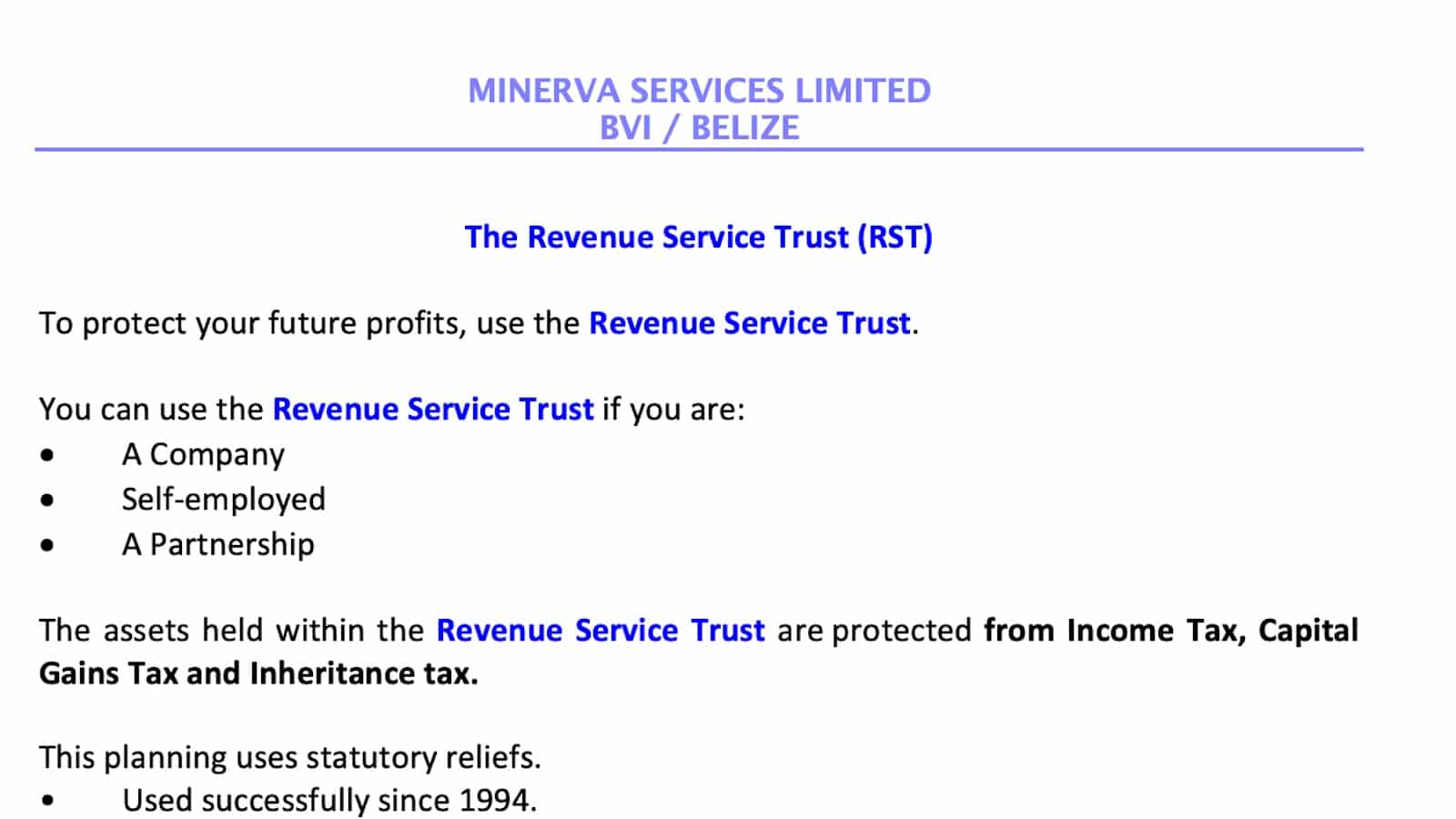
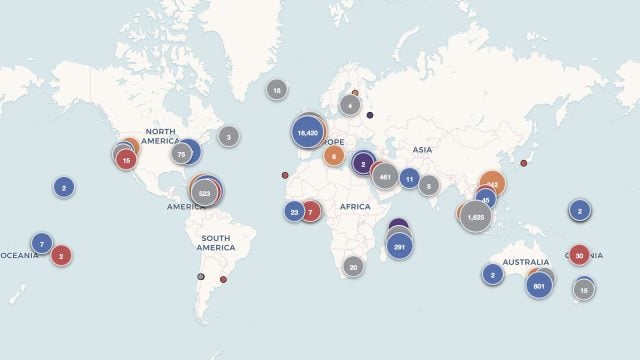
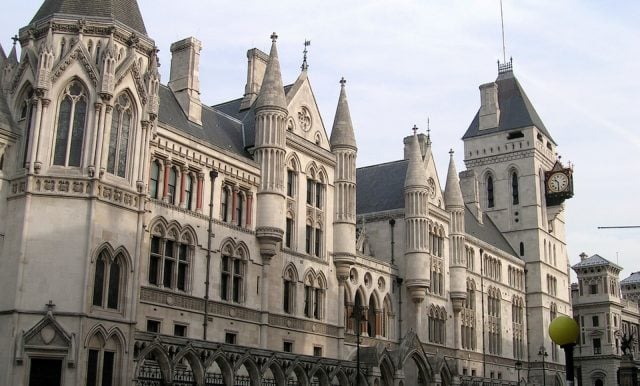
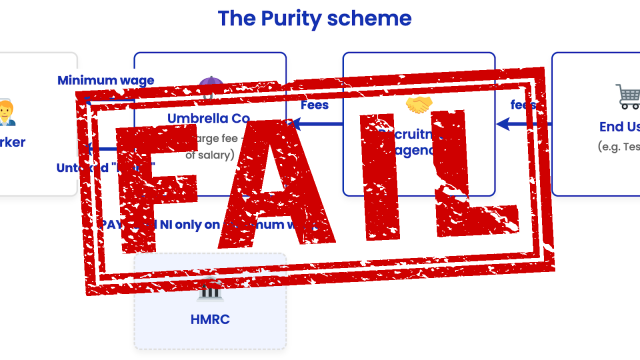

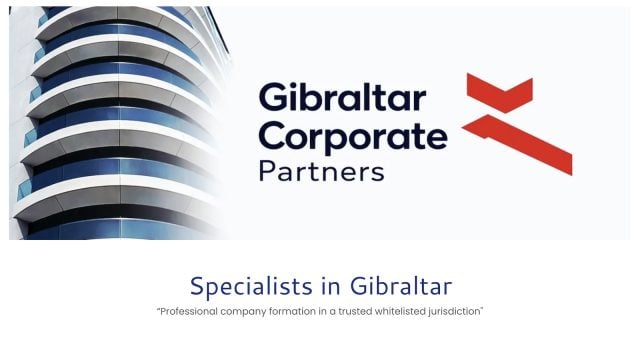
Leave a Reply to Hugo Fair Cancel reply